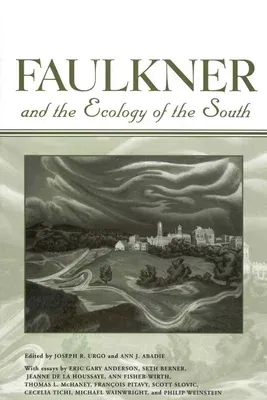Faulkner and the Ecology of the SouthPaperback, 9 August 2005

Qty
1
Turbo
Ships in 2 - 3 days
In Stock
Free Delivery
Cash on Delivery
15 Days
Free Returns
Secure Checkout
Part of Series
Faulkner and Yoknapatawpha
Print Length
173 pages
Language
English
Publisher
University Press of Mississippi
Date Published
9 Aug 2005
ISBN-10
1934110973
ISBN-13
9781934110973
Description
Product Details
Book Format:
Paperback
Country of Origin:
US
Date Published:
9 August 2005
Dimensions:
22.86 x
15.24 x
1.17 cm
ISBN-10:
1934110973
ISBN-13:
9781934110973
Language:
English
Location:
Jackson
Pages:
173
Publisher:
Series:
Weight:
299.37 gm

